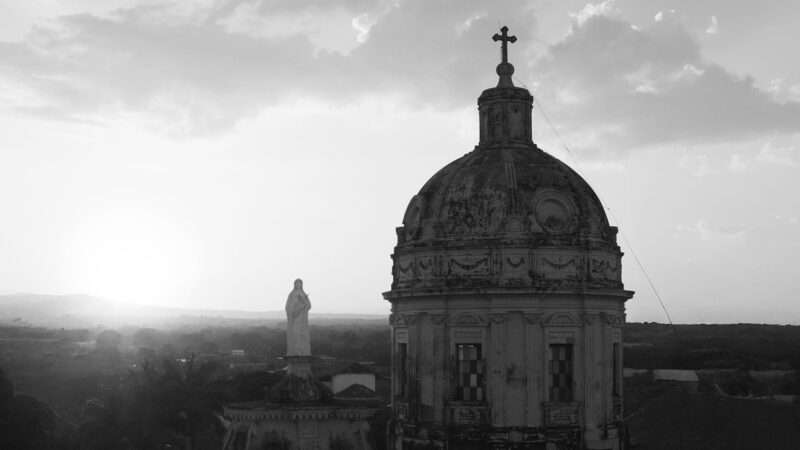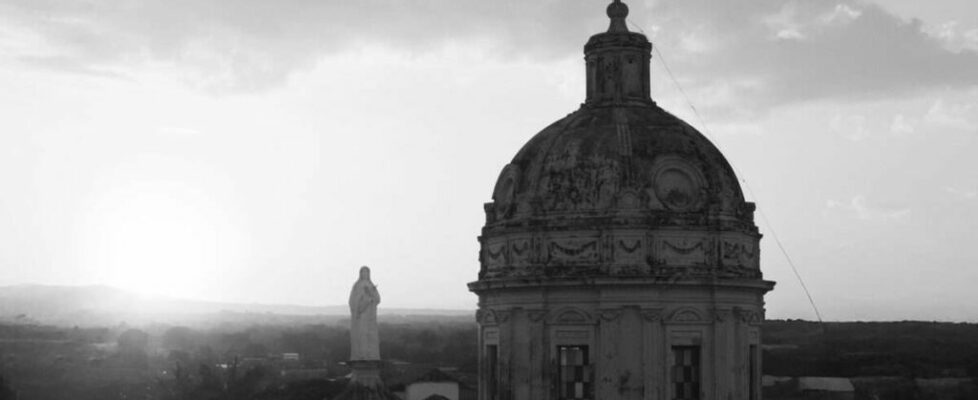Nicaragua’s Regime Wages War on Religious Freedom

Nicaragua has become one of the 20 most dangerous countries in the world for Christians, according to the International Christian Concern’s (ICC) Global Religious Persecution Index. The regime’s crackdown on religious groups is not an isolated campaign—it mirrors a broader attack on civil liberties.
“As is the case in many communist countries, Nicaragua has come to view religion as an enemy of the state,” the ICC notes in its report. “[President Daniel] Ortega has led the country’s new antagonism toward the Church, which he sees as subversive to his claim to absolute power.”
The repression began in 2018 when Ortega’s regime went after the Catholic Church for mediating between the state and anti-government protesters. Since then, targeted retaliation has grown into a full-scale assault on religious freedom.
“The government initially targeted the Catholic Church because it provided sanctuary to demonstrators, and clergy voiced opposition to the government’s human rights abuses,” reports the U.S. Commission on International Religious Freedom. “More recently, the government’s actions have led to full-scale shuttering of the Church’s activities, mass imprisonments, and the targeting of multiple other religious groups.”
Ortega and his wife, Vice President Rosario Murillo, have accused church leaders of being “agents of evil” engaged in “spiritual terrorism.” They claim the clergy is inciting civil unrest and planning to overthrow the regime.
The consequences for religious groups—Catholics and others—have been devastating. Since 2018, over 1,100 religious entities have been forcibly closed, more than 70 individuals detained for their religious affiliations, and 84 priests forced into exile.
Surveillance and harassment of church leaders have become ubiquitous, with the Ministry of Interior imposing strict controls on religious activities and regulating visits from foreign clergy, according to the ICC. Easter processions, Christmas celebrations, and even cemetery prayers have all been outlawed.
The regime has frozen church bank accounts, confiscated properties, and shut down religious media outlets. Paramilitary groups aligned with the regime have desecrated churches, looted religious sites, and carried out arson attacks.
In 2023, Ortega escalated his campaign by closing the Vatican Embassy in Managua and expelling the papal ambassador after Pope Francis likened Nicaragua’s government to a dictatorship. By 2024, the regime had dissolved the Episcopal Diocese of Nicaragua along with 92 other religious organizations.
“Bishops and priests have been deprived of their freedom,” Pope Francis said in this year’s Angelus prayer.
Attacking religious institutions is part of a larger strategy to crush dissent and consolidate power. Over the years, Ortega and Murillo have systematically dismantled democratic institutions, manipulated elections, compromised courts, and silenced critics through imprisonment, exile, and harassment.
Educational and cultural freedoms have also been gutted. Since 2021, the government has closed down over 30 universities. Ortega accused the Jesuit University of Central America—the first private university in the region—of “terrorism,” forcing its closure and seizing its assets in 2023.
Since 2018, more than 5,000 nonprofit organizations—including secular and religious groups—have been shut down. The closures extend to groups like the Red Cross, Save the Children, the American Chamber of Commerce, foundations dedicated to fighting diseases, sports associations, rotary clubs, and even chess clubs.
Independent media outlets have been shuttered and journalists face relentless harassment. Outlets have “continued to endure a nightmare of censorship, intimidation and threats,” according to Reporters Without Borders. In 2023, over 300 political figures, journalists, intellectuals, and human rights activists were accused of treason, stripped of their citizenship, and expelled from the country.
Eighty percent of Nicaraguans identify as Christian, with half being Catholic and 30 percent evangelical. In a country deeply rooted in faith, Ortega’s attack on religion is a calculated effort to suffocate dissent and dismantle spaces of hope and community, tightening his grip on a nation with fewer places left to turn.
The post Nicaragua’s Regime Wages War on Religious Freedom appeared first on Reason.com.
